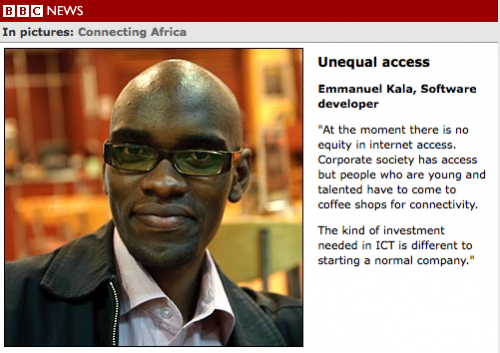Africa’s mobile industry needs to re-invent itself to meet tomorrow’s challenges
Another great zinger from Russell Southwood’s Balancing Act on the state of the mobile industry across Africa and what needs to change.
“Furthermore, although the shift to data puts a spring in the step of most mobile executives, the shift to an interest in services and apps has the potential to marginalise them as “dumb pipe†operators. The new generation of OS operators (Blackberry, iPhone, Android and others) are offering services and apps in a way that the mobile operators failed to do.”
Desert discs: How mobile phones are at the root of Saharan music.
Christopher Kirkley went to Mali to make field recordings, but returned with a mixtape of music taken from Saharan Sim cards.
African Facebook stats, by Country:
“Only 1.7% of Africans are on Facebook, but since there is only 10.9% Internet penetration, we see that 15.9% of African Internet users are on Facebook.”
Kenyan Internet users woo businesses to Twitter and Facebook
“According to the research, Kenya is ahead of its peers in East Africa in social networking with an average consumer spending atleast 6.5 hours per week, followed by Tanzania — 1.6 hours per week — and Uganda 1.5 hours per week.”
Reflections with Michael Joseph in his last week as CEO of Safaricom:
(Video 1, Video 2)
Reflections with Michael Joseph from Al Kags on Vimeo.
Wrong model. Wrong place.
Ken Banks discusses the challenges of normal business models in the ICT4D and M4D space.
The Future of Mobile in Africa:
A great deck by Rudy de Waele, from his talk at Mobile Web Africa 2010.

